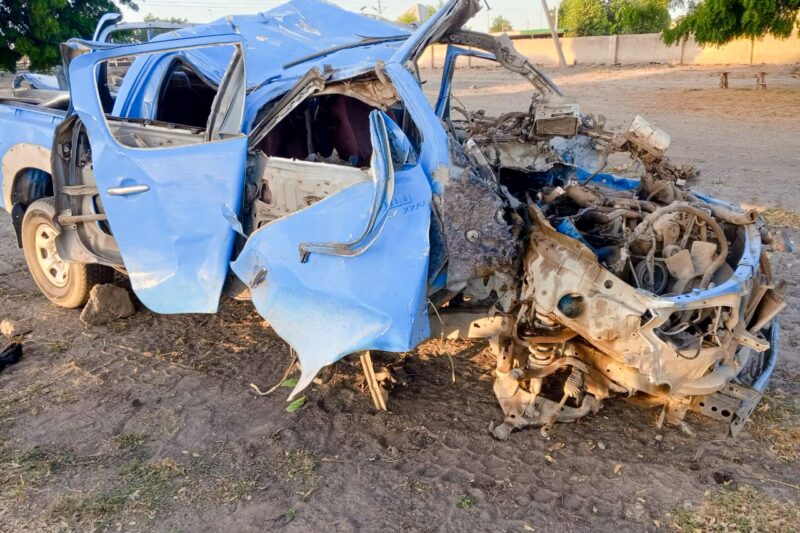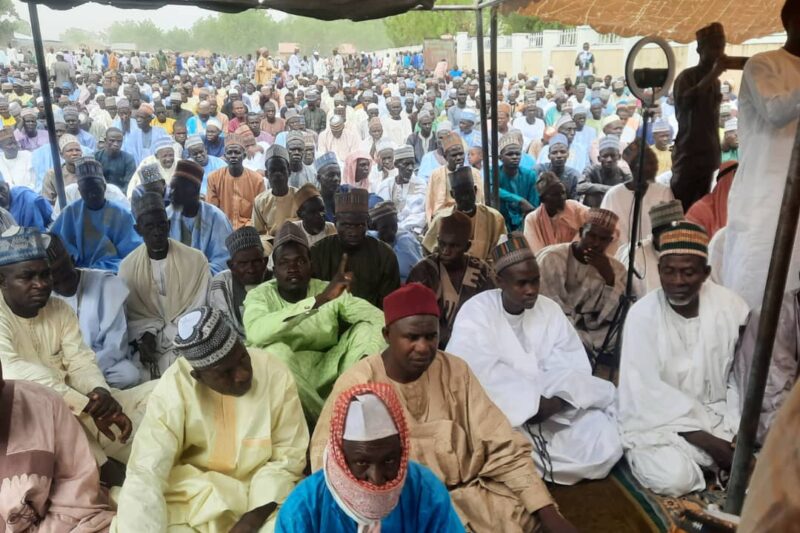For years persistent and deadly attacks by insurgents forced the farmers of Bama in Borno State to flee for their lives. Most ended up in internally displaced persons’ camps, where they stayed for years. Now they are back. But this time, it’s not insecurity that is holding them back, it’s poverty.
They cannot afford to buy agricultural implements and they do not even have enough money to buy fertilisers, such as manure and compost, to make their lands fertile again.
Muhammad Sanda, a farmer in the Bama Local Government Area, told RNI reporter Aisha Jamal their insecurity problems were over. Troops accompanied them to their lands on the outskirts or inside the town and did regular patrols while the farmers worked.
For the first time in years they were living peacefully, but most of them had little money and only a few had agricultural implements and equipment. Just about all of them were virtually living like paupers because they could not afford faming essentials, such as fertiliser and pesticides.
“Farming now in Bama is peaceful. We have troops watching over us. Most of the improvised explosive devices [IEDs] have been disposed of and no farmer has come across them since we returned. It’s a great relief because when the insurgents were attacking us, so many farmers were killed or badly maimed by the explosives.”
He said the last blast was an accident. An IED had been picked up by one of the people who searched the area for scrap metal. “That was on July 25. The metal picker did not know what he had found and thought he could sell it as scrap to dealers in town. Unfortunately, it exploded and some people were killed. Other than that terrible accident, we have not heard of anyone else who has been harmed or killed by these devices.”
Sanda said things were looking positive on the security front.
“But now money, or rather the lack of it, is our main concern. We need capital to get our lands back on track. We need agricultural implements and equipment and fertiliser and seeds. And most of us simply cannot afford the farming necessities. We do not have the farming inputs that we need.
“Mostly prices of all the inputs have spiked and we cannot afford to buy things like fertilisers and pesticides. We cannot buy a tractor and we do not even have money to hire one.”
Sanda said the farmers had not received any aid from the government.
“But recently a non-governmental organisation (NGO) called Caritas distributed seed and fertiliser to farmers here. But it was just not enough. We were very grateful to receive the assistance but it reached only about 10% of the farming population.”
He said if all the farmers could get some aid, it would go a “long way in solving some of the problems of food insecurity we are facing in this region”.
Fertiliser used to cost ₦2,500, he said, but now it costs ₦4,000 which most of the farmers could not afford.
“We have pleaded with the authorities to provide farming inputs because we need them urgently. Not being able to farm our lands is breaking the hearts of many farmers. If the government and NGOs got together to assist us we would gladly return to our lands and contribute to ending the food insecurity the nation is facing.”
Abour Mele, also a farmer, said: “I have large tracts of land but I cannot cultivate them properly because I do not have the capital. I could grow more than sufficient for my family and even some neighbours and still have enough produce to take to the market. Instead, I sit here looking at my land instead of working it.”
- Caritas is an NGO that works to fight malnutrition and food insecurity in the Sahel and the Horn of Africa.
AISHA SD JAMAL








